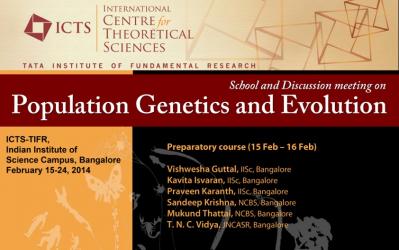Just as evolution is central to our understanding of biology, population genetics theory provides the basic framework to comprehend evolutionary processes. Population genetics theory allows quantitative predictions of evolutionary processes, integrating mathematical and statistical concepts with fundamental biological principles of genetic inheritance and processes such as mutation and selection. Population genetics theory is thus critical to understanding many pressing issues in biology, such as the evolution of antibiotic resistance in pathogens, the formation of new species and the emergence of cooperative and altruistic behaviors.
This school aims to expose students and researchers from diverse backgrounds to the basics and the forefront of current research in population genetics. In addition to evolutionary biology students, we welcome students of mathematics, statistics, medicine, and physics who are interested in evolutionary theory. To equip students to think about issues in population genetics, we will first conduct a brief refresher course in mathematics, statistics, and basic biology including evolution and genetics. The remainder of the school will introduce and develop an understanding of population genetics theory and its applications to interesting phenomena such as the evolution of sex and recombination, phenotypic plasticity, polyploidy, and human diversification. The program will conclude with a short discussion meeting in which active researchers will discuss their recent work on aspects of population genetics theory.
 icts
icts res
res in
in

